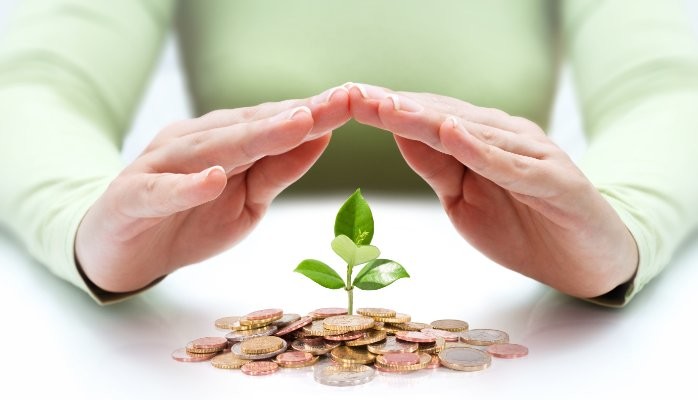The international community increasingly recognizes the importance of coalitions such as the G20, which includes the world’s biggest 19 economies and the EU. Such alliances offer valuable support and assist in economic, trade, energy, and climate discussions.
In September, the Financial Times noted that advanced and emerging economies can no longer live in isolated pockets: “The health of our planet and our economy depends on our cooperation.”
In September, the African Union (AU) joined the G20 and earned a permanent seat as the second regional bloc in the group. Given Africa’s untapped economic potential and fast-growing population, such a step acknowledges the continent’s economic prospects.
G20 membership brings numerous advantages, enabling the AU to improve cross-border trade relations, increase clean energy production, and attract FDI, particularly for projects that mitigate climate change.
Fardous Abdel-Baky, a researcher at the Egyptian Centre for Strategic Studies (ECSS), wrote in Al-Ahram Online that AU membership in the G20 will “help attract more investments to Africa in areas such as energy, infrastructure, and technology.”
Egypt should significantly capitalize on those opportunities, as it currently chairs the AU’s New Partnership for Africa’s Development (NEPAD) program.
Two coalitions
Founded in 1999, the G20 is an informal forum to discuss global economic and financial issues annually.
According to the group’s website, the G20’s members represent 85% of the global GDP, 75% of international trade, and two-thirds of the world population.
G20 member states recognize the power of enlarging trade relations to maximize global economic growth, capitalizing on the role of the World Trade Organization (WTO). The G20 Summit Declaration 2023 noted that member states will “support policies that enable trade and investment to serve as an engine of growth and prosperity for all.”
This goal is meant to be achieved by ensuring that trade policies are mutually supportive and aligned with the principles and regulations of the WTO.
The AU comprises all African countries and seeks to build “an integrated, prosperous and peaceful Africa, driven by its own citizens,” said the AU website. Collectively, the group has a gross domestic product of $3 trillion, ranked 11th in the world.
Africa has ample human and natural resources that can help the AU boost the continent’s growth and excel globally. Africa’s young population (40% are under 15, according to data-aggregator Statistica, compared to the 25% global average) of 1.4 billion is set to double by 2050.
Additionally, the African Economic Outlook 2023, published by the African Development Bank Group, says that the continent is endowed with renewable and non-renewable natural resources and minerals necessary for the global transition to a net-zero carbon future. The United Nations notes the continent’s vast deposits of natural resources promise a bright future for developing value chains.
“Harnessing the potential of natural resources provides an opportunity to improve the fiscal and debt sustainability of African countries,” according to the World Bank,
Internationally, Africa is becoming one of the newest destinations for emerging market investors. According to the United Nations, Africa’s economic growth prospects are among the world’s brightest and hold significant opportunities for FDI.
Africa’s new era
Being included in the G20 alongside major world economies is a step that comes with an array of benefits. “This membership, for which we have long been advocating, will provide a propitious framework for amplifying advocacy in favor of the continent and its effective contribution to meeting global challenges,” AU Commission Chairperson Moussa Faki Mahamat, wrote on X (formerly Twitter).
The host of the G20 summit in 2023, Indian Prime Minister Narendra Modi, sees AU admission into the G20 as a mutually beneficial process that will “strengthen the G20 and also strengthen the voice of the Global South,” according to Reuters.
Given its substantial population, Africa’s representation in the G20 is seen as a pivotal shift from being a recipient to an active influencer in global decisions. “The representation of Africa should be significant because that’s how you make for an inclusive global governance architecture. So for the G20 to retain its relevance, it has to reach out to these geographical regions,” Harsh Pant, senior analyst at the Delhi-based Observer Research Foundation, said on the National News website.
Trade potential
With its focus on increased cooperation among African countries, the AU is a crucial driver of the continent’s development and growth. Globally, the AU also aims to encourage international cooperation and enable the continent to play a more prominent role in the global economy and international negotiations.
The continent is a significant contributor to global economic growth. According to the African Economic Outlook 2023, “Africa remains resilient amidst multiple shocks with average growth projected to stabilize at 4.1% in 2023–24, higher than the estimated 3.8% in 2022.”
The AU website noted that the union’s trade initiatives are vital in attracting investment and pooling resources to enhance structural transformation. One of the AU’s significant initiatives is the African Continental Free Trade Area (AfCFTA) agreement. According to the World Economic Forum Insight Report 2023 titled “AfCFTA: A New Era for Global Business and Investment in Africa,” the pact created the world’s largest free trade area, which creates a single market that is set to grow to $6.7 trillion in consumer and business spending by 2030.
The AfCFTA should then increase international exports and intra-African trade relations. This will also unlock tremendous opportunities for local and global businesses to enter into and expand throughout new markets across the continent, said the report.
AU membership in the G20 will also open the door for the continent to expand trade with major global players. The World Economic Forum (WEF) says, “The African Union’s introduction into the G20 is likely to influence trade flows from the continent.”
The G20 has already signaled its openness to easing trade measures and promoting economic integration among its members. Per the 29th Trade Monitoring Report on G20 trade measures, “between mid-October 2022 and mid-May 2023, G20 economies introduced more trade-facilitating than trade-restrictive measures on goods.” The G20’s facilitating measures were estimated to cover trade valued at $691.9 billion.
Climate agendas
A core topic of G20 discussions is climate change, which significantly affects Africa. In a policy brief published in May 2023 by Development Reimagined, an Africa-based consultancy, “African leaders such as Kenya’s President William Ruto have been calling for the inclusion of Africa in climate-related discussions, stressing that Africa has its solutions that will help tackle the matter, which the AU can feed into the G20.”
Given these circumstances, the African continent holds significant importance in discussions about climate change due to the abundant resources crucial for addressing and mitigating the effects of climate change. “The African continent has 60% of the world’s renewable energy assets and more than 30% of the minerals key to renewable and low-carbon technologies,” reported AP News.
Africa’s representation in the G20 can be a significant step to foster investments in climate action and green growth. “Between $2.6 trillion and $2.8 trillion is needed by 2030 to implement Africa’s climate commitments as expressed in countries’ recently submitted Nationally Determined Contributions,” said the African Economic Outlook.
The IMF’s Global Financial Stability Report 2023 highlights that investments related to climate risk mitigation need to reach 12% of total investments in emerging markets and developing economies by 2030.
During the latest G20 summit, IMF Managing Director Kristalina Georgieva pointed out the importance of bolstering finances for climate action. “G20 members must lead by example in delivering on the promises of $100 billion per year for climate finance, supported by strengthening the Multilateral Development Banks,” she said, adding the IMF has secured $40 billion to support vulnerable countries through the Resilience and Sustainability Trust.
In line with the U.N. Sustainable Development Goals, both the G20 and the AU’s Agenda 2063 specifically focus on expanding the use of renewable energy. According to the G20 Summit 2023 Declaration, the group aims to “pursue and encourage efforts to triple renewable energy capacity globally through existing targets and policies, as well as demonstrate similar ambition with respect to other zero and low-emission technologies.”
The Low-Cost Financing for Energy Transitions Report 2023 estimates a need for $4 trillion in annual investments by 2030 to achieve this goal.
The African Energy Chamber noted, “The continent’s overall renewable capacity is projected to increase from about 27.4 gigawatts in 2023 to 280 gigawatts in 2035, showcasing significant opportunities for investors and project developers alike.”
However, the continent still needs more funds to develop the African energy sector. The Renewable Energy Market Analysis: Africa and Its Regions report noted that “despite the continent’s vast potential and requirements, just 2% of the $2.8 trillion spent on renewables globally between 2000 and 2020 went to Africa.”
Egyptian leadership
As an AU member and chair of NEPAD, Egypt plays a significant role in helping the AU achieve its goals of promoting economic integration, accelerating the implementation of the Africa Agenda for Development, and facilitating the AU’s integration into the G20.
NEPAD coordinates and implements key continental and regional projects outlined in Agenda 2063. “The primary goal is to expedite regional integration to attain the vision of the Africa we want,” said the program’s website.
During the New Delhi Summit, Egypt expressed its readiness to become a global hub for grain storage and trade. The AU seat will further facilitate and strengthen existing and future trade relations between Egypt and G20 nations. According to CAPMAS, trade between Egypt and G20 countries reached $88 billion in 2022, up 10% from $80.1 billion in 2021.
Egypt’s participation in the G20 as part of the African will enhance its economic potential and weight among the world’s top economies.







